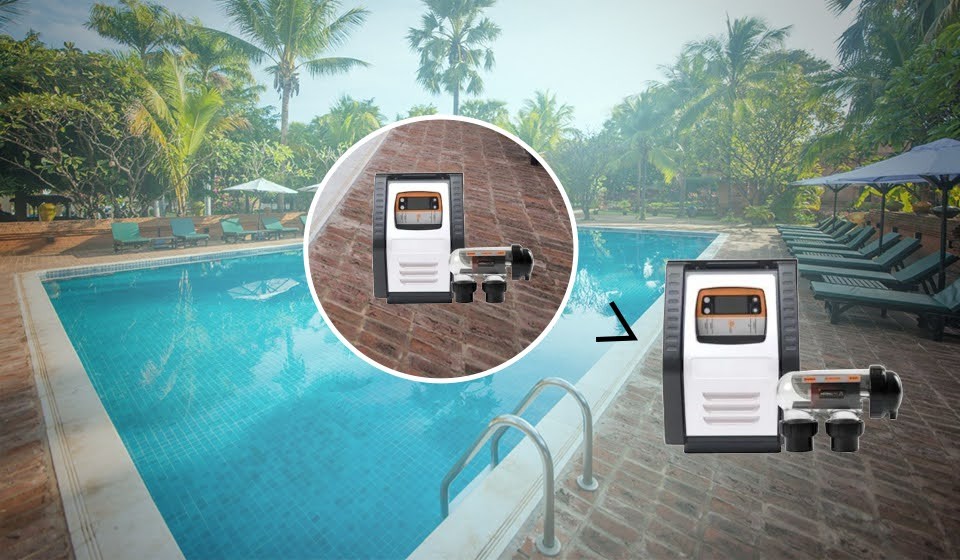Owning a swimming pool brings joy, relaxation, and an easy way to cool off on warm days. But along with the fun comes the responsibility of keeping the water safe, clean, and healthy for everyone to enjoy. One of the best ways to simplify pool care is by using a salt water pool chlorinator. This system not only reduces the need for harsh chemicals but also makes maintenance much easier.
Saltwater pool chlorinators have become popular for both small and large pools because they are reliable and provide consistent water quality. Instead of adding chlorine by hand, the chlorinator creates chlorine automatically through a natural process, keeping the water fresh and clear. Choosing the right saltwater pool chlorinator is important because it affects the overall performance of your pool, the comfort of swimmers, and the long-term costs of maintenance. Let’s explore how saltwater chlorinators work, what to look for when selecting one, and why they are considered a smarter option for pool filtration needs.
How Does a Saltwater Pool Chlorinator Work?
A saltwater chlorinator uses a simple process called electrolysis. Here’s how it works step by step:
- Salt (sodium chloride) is added to the pool water in a small amount.
- The water then passes through the chlorinator’s cell, which contains titanium plates.
- An electrical current runs through the plates, splitting the salt into sodium and chlorine.
- The chlorine disinfects the pool by killing bacteria and algae.
- After doing its job, the chlorine turns back into salt, and the cycle continues.
This closed cycle ensures that chlorine is always being generated in the right amount. You don’t need to add chlorine manually, which makes saltwater pools easier to care for compared to traditional pools. Another benefit is that chlorine levels remain steady, so the water is less likely to irritate the skin or eyes.
Choosing the Right Saltwater Pool Chlorinator:
Not all saltwater chlorinators are the same, so it’s important to pick one that suits your pool’s size and needs. Here are three main factors to consider:
Pool Capacity
The size of your pool determines how powerful the chlorinator should be. If the chlorinator is too small, it won’t produce enough chlorine, leaving your water cloudy or unsafe. On the other hand, choosing a unit that is too large can be wasteful and more expensive than necessary. Matching the chlorinator’s capacity to your pool size ensures balanced chlorine production and smooth operation.
Electrolysis Cell
The electrolysis cell is the heart of the chlorinator. This part is usually made of titanium and coated with special metals to withstand the process of chlorine production. A high-quality cell lasts longer and ensures the chlorinator works efficiently. When selecting a chlorinator, check that the cell is durable and built for long-term use, as replacing it too often can increase costs.
Self-Cleaning Feature
Over time, minerals like calcium can build up on the plates of the chlorinator cell. This reduces efficiency and can even damage the unit if not cleaned regularly. A self-cleaning chlorinator solves this problem by automatically reversing the polarity of the plates, preventing buildup. This feature not only saves you time but also extends the life of the chlorinator.
Benefits of a Saltwater Pool Chlorinator
Switching to a saltwater chlorinator offers several advantages over traditional pool systems. Here are the main benefits:
Eliminates Harsh Chemicals
Saltwater systems reduce the need to handle and store chlorine directly. The water feels softer and lacks the strong chemical smell associated with traditional pools. Swimmers often notice less skin dryness and less eye irritation, making swimming more enjoyable for all ages.
Safer and More Consistent
Saltwater pools create chlorine at a steady, gentle level, unlike traditional pools where large amounts are sometimes added at once. This reduces the risk of chemical overdosing and keeps the pool water balanced. For families and frequent swimmers, this consistency provides peace of mind.
Less Maintenance
One of the biggest advantages of a saltwater chlorinator is reduced upkeep. Since chlorine is generated automatically, you don’t need to constantly measure, mix, or add chemicals. With less manual work, you’ll spend more time enjoying the pool instead of worrying about it.
Why Is Right Installation Worth It?
Correct installation of a pool salt cell is more important than many realise. If it’s not fitted properly, the entire system can suffer, leading to poor circulation, added strain on the pump, and shorter equipment life. Hiring a professional pool builder in Wodongaensures the job is done right from the start. They know how to set up the cell, align plumbing, and make safe electrical connections. Their expertise also helps in choosing the right-sized system for your pool. With proper installation, you get smoother performance, better water quality, and fewer costly repairs down the track.
Conclusion
Choosing a saltwater chlorinator is a smart way to simplify pool maintenance, reduce chemical use, and enjoy consistently clear water. By understanding how these systems work and selecting the right one for your pool’s size, you ensure long-lasting comfort and savings.
With a good saltwater chlorinator, you can spend less time worrying about upkeep and more time enjoying refreshing swims with family and friends. It’s a practical choice that balances convenience, safety, and cost-effectiveness, making pool ownership truly enjoyable.

